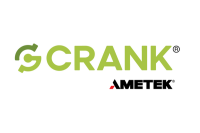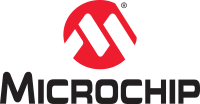Workshops Presented by:

Session 1: Developing and deploying AI models for always-on, low-power, smart sensor applications
Wednesday, June 21 10:00am-12:00pm
Avnet in partnership with Renesas, Syntiant and TDK have developed “RASynBoard” -a small form factor, low-power device designed to perform ML at the edge.The RASynBoard hardware design includes a Renesas RA6M4 (MCU), DA16600 (WiFi/BLE module), a Syntiant NDP120 (Neural Decision Processor) plus two TDK sensors (6-Axis IMU + Microphone).RASynBoard will be used for hands on Lab exercises to help students become familiar with the solution and the tools required to deploy and exercise ML models at the edge. Students will receive a new RASynBoard that they can take home to further explore the solution.The workshop contains a hands-on exercise leveraging RASynBoard and pre-built binaries/models that students will flash onto their hardware so they can experience the solution in action.Additionally, there will be an overview of Edge Impulse, a web-based tool to collect data, optimize models and produce ML models/libraries for embedded devices. These ML models can be leveraged on RASynBoard as well as other ML platforms.
Led by: Brian Willess, Avnet
Session 2: Fast Prototyping with Renesas Quick-Connect IoT and Quick-Connect Studio
Wednesday, June 21 12:30pm-2:30pm
Engineers are tasked to develop new products within shorter and shorter design cycles. To achieve this goal, they need tools from their semiconductor suppliers which are widely accessible and easy to use. Renesas Quick-Connect IoT and Quick-Connect Studio tools were developed to help design engineers build their prototyping systems quickly and turn them into products within a short time frame. Attendees of this hands-on lab session will learn how to use the Renesas Quick-Connect IoT framework to build an IoT application. This seminar will also introduce Renesas’ innovative cloud-based development environment which is easy to use and widely accessible. During this lab, attendees will establish communication between an RA6M5 microcontroller and the HS3001 temperature and humidity sensor by using very simple steps. We will demonstrate how easy it is to use the Wi-Fi connectivity framework of the Flexible Software Package to connect a Renesas DA16200 Wi-Fi module to the cloud and send MQTT commands back to the development kit to control LEDs. This lab utilizes the Renesas RA6M5 Cloud Kit and DA16200 Wi-Fi Pmod module.
Led by: Dirk Seidel, Renesas
Session 3: Developing and deploying AI models for always-on, low-power, smart sensor applications
Wednesday, June 21 3:00pm-5:00pm
Avnet in partnership with Renesas, Syntiant and TDK have developed “RASynBoard” -a small form factor, low-power device designed to perform ML at the edge.The RASynBoard hardware design includes a Renesas RA6M4 (MCU), DA16600 (WiFi/BLE module), a Syntiant NDP120 (Neural Decision Processor) plus two TDK sensors (6-Axis IMU + Microphone).RASynBoard will be used for hands on Lab exercises to help students become familiar with the solution and the tools required to deploy and exercise ML models at the edge. Students will receive a new RASynBoard that they can take home to further explore the solution.The workshop contains a hands-on exercise leveraging RASynBoard and pre-built binaries/models that students will flash onto their hardware so they can experience the solution in action.Additionally, there will be an overview of Edge Impulse, a web-based tool to collect data, optimize models and produce ML models/libraries for embedded devices. These ML models can be leveraged on RASynBoard as well as other ML platforms.
Led by: Brian Willess, Avnet
Workshop Presented by:
Grow your business with LoRaWAN®
Thursday, June 22, 1:00pm-3:00pm, Live Theater & Workshop Zone
The Things Industries presents “Grow your business with LoRaWAN,” a dynamic and insightful 2-hour workshop during Sensors Converge. The presentations during this workshop are aimed at empowering entrepreneurs and businesses with the knowledge to leverage the potential of LoRaWAN technology. The Things Industries brings together industry-leading experts to:
- share their expertise and experiences in designing scalable LoRaWAN products
- explore the world’s first LoRa SoC with flexible LPWAN capability
- showcase an energy harvesting project with the Generic Node, a multi-use case LoRaWAN device
Visit The Things Industries booth 601 & 603, where we will present the Wall of Fame for LoRaWAN devices, which allows you to touch and interact with dozens of LoRaWAN-enabled devices and gateways.
Agenda
1:00pm-1:45pm: How to design LoRaWAN® products for scale
Presented by: Josh Cox, Founder and CEO, Oxit
1:45pm-2:10pm: STM32WL, World's First LoRa SoC with flexible LPWAN capability
Presented by: Tim Nakonsut, Product Marketing Engineer, MCU and Memory at STMicroelectronic
2:10pm-2:35pm: Central Gateway operation with The Things Stack and At Sign
Presented by: Colin Constable, AT Sign
2:35pm-3:00pm: Powering the Generic Node with Energy harvesting
Presented by: Vanja Samuelsson, Qoitech
Workshop Presented by:

Reducing Project Time with a Parallel Embedded GUI Development Workflow
Wednesday, June 21, 2023, 2:15 PM - 3:15 PM, Live Theater & Workshop Zone
Where previously, every change to the front-end UI led to frustration for the back-end developers, there are tools that help circumvent this problem and significantly increase UI app development efficiency.By opting for UI development tools with a parallel workflow, Software Engineers and UX/UI Designers can collaboratively work together to develop GUI applications for their products. All without disrupting each other’s development workflow.Learn how a parallel development workflow can help your project team eliminate development delays and disruptions, to hit UI project milestones on time.
Workshops Presented by:

Session One: Rapid Application Development Using Arduino® and AVR® Dx Family of MCUs
Wednesday June 21, 9:00 AM – 12:00 PM in Grand Ballroom H
Limited Spaces. Register to secure your place.
Requirements:
- A computer with Windows® 10 or 11 and at least one available USB-A port
- Arduino v2.x IDE installed; this course refers to the new Arduino IDE exclusively
This hands-on training will teach you how to use the AVR® Dx family of MCUs within the Arduino development environment. You will use an AVR64DD32 Curiosity Nano evaluation board to quickly develop and optimize a color detection system using an external RGB color sensor to correctly identify the color of various small objects.
You will learn how to import the AVR Dx family of MCUs into the Arduino IDE and configure the build environment settings. We will also briefly introduce you to the MCU target core support structures. You will also implement some of the enhanced features available in the AVR Dx family of MCUs, allowing attendees familiar with the AVR ATmega328P/mega2560 Arduino platforms to migrate to the newer devices in a familiar development environment.
Presented by:
Bob Martin, Senior Staff Engineer, Microchip
Session Two: Debugging Arduino® Applications in MPLAB® X IDE
Wednesday June 21, 1:00 PM – 4:00 PM in Grand Ballroom H
Limited Spaces. Register to secure your place.
Requirements:
-
A computer with Windows® 10 or 11 and at least one available USB-A port
-
Arduino v2.x IDE, Arduino Command Line Interface (CLI) and MPLAB X IDE installed
Session one is not a prerequisite but is highly recommended.
This session continues with the concepts covered in session one but moves to the MPLAB® X IDE. You will learn how to install the Arduino sketch import plug-in and then use this plug-in to import a working sketch into the MPLAB X IDE as developed in session one. If you did not attend session one, we will provide a working example. We will cover basic debugging functions provided by MPLAB X IDE such as breakpoint insertion, direct data inspection, manipulation, direct GPIO and peripheral register control. We will also conduct a more in-depth review of the Arduino core and library support structure, allowing you to enhance or refactor
code as you see fit. We’ll also cover some of the enhanced features of the new AVR64DD32 Curiosity Nano board and associated support in the Arduino core libraries.
Presented by:
Bob Martin, Senior Staff Engineer, Microchip
--------
Workshops require registration to attend.
